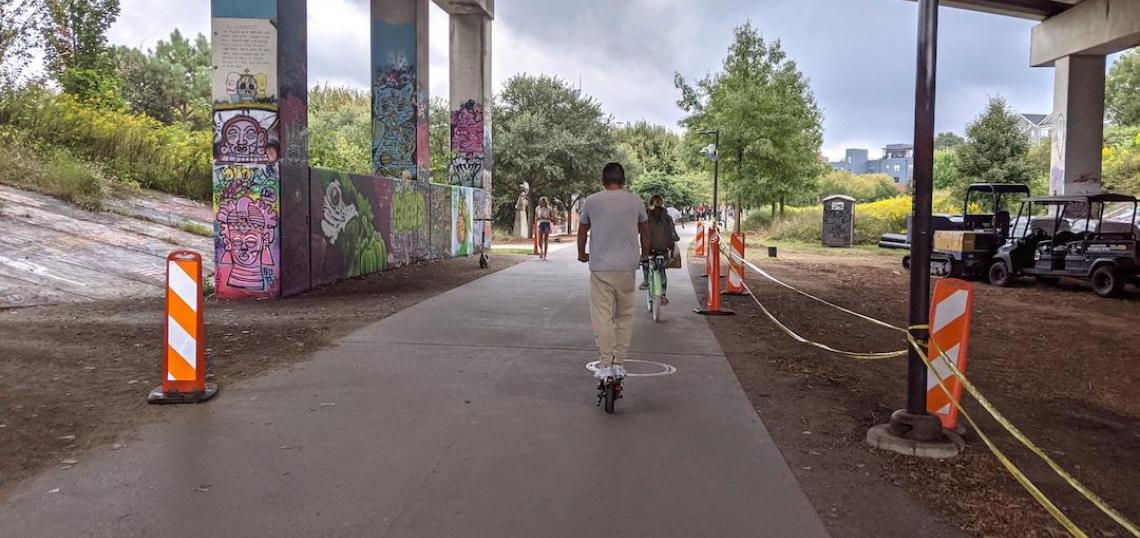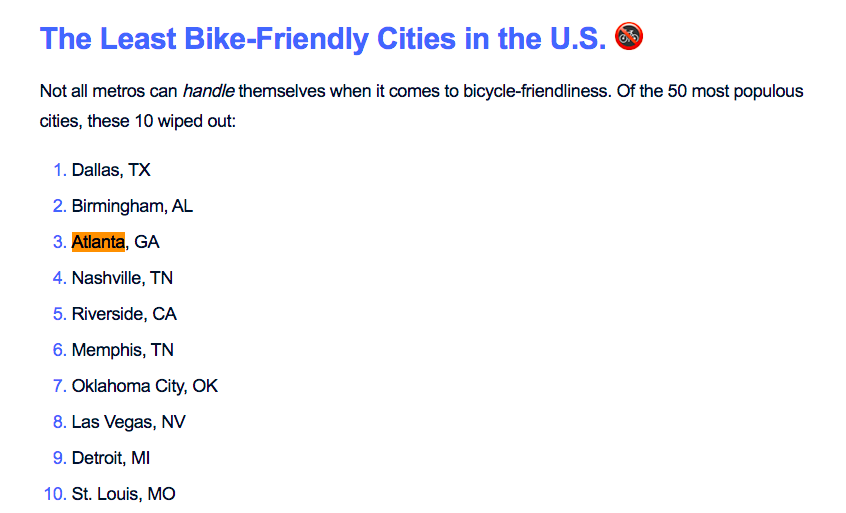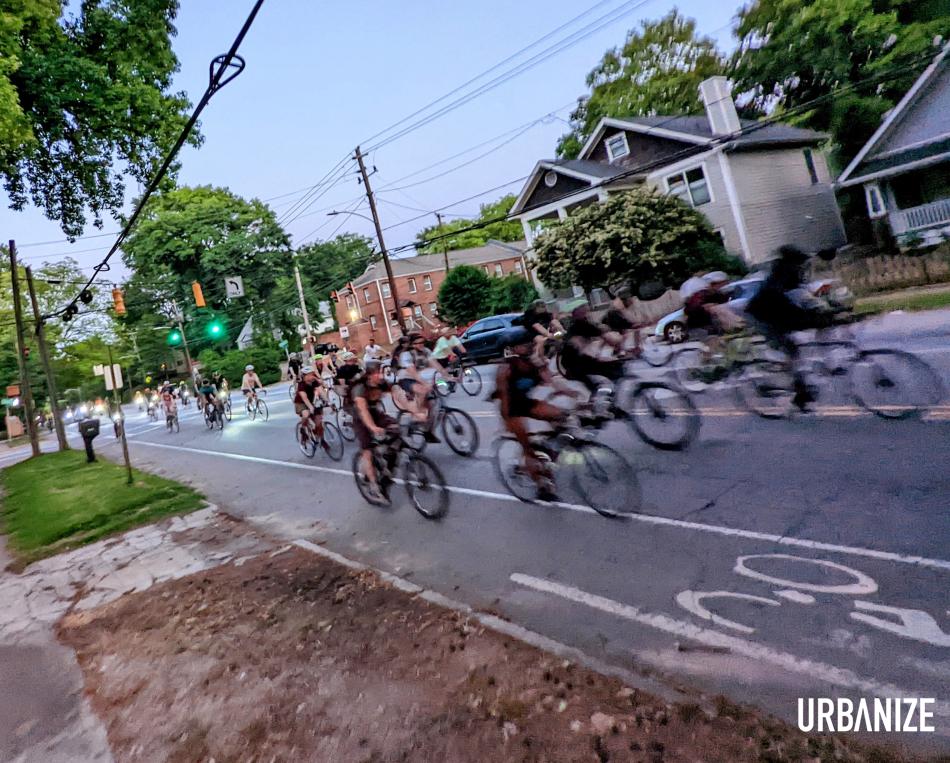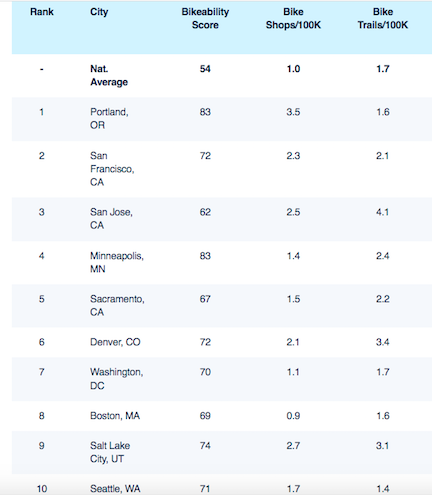Here’s some news Atlanta’s avid and growing (some might say rabid) bicycling community could find deflating. Like a proverbial shard of glass in the inner tube.
Using what appears to be solid methodology, real estate data company Clever has compiled a 2022 ranking of The 50 Most Bike-Friendly Cities in the U.S.
Despite the strides agencies like Atlanta BeltLine Inc. and PATH Foundation have made, and the advent of protected bike lanes from Vine City to Decatur when very few existed a decade ago, the ATL still clunks in almost last place, when compared to the 50 most populous cities in the land.
Clever found Atlanta to be the third-worst biking city in America, slotted above only Birmingham and Dallas, respectively. We’re No. 48 of 50, in other words.
What went wrong? “Our bottom 10 cities proved they can't handle the (tire) pressure,” Clever reps joked/jabbed, in summation.
Atlanta’s overall bikeability score—just 42 of 100—did the city no favors. (Compare that to No. 1, rainy Portland, which logged an 83 score, tied with No. 4, freezing Minneapolis.) “Bikeability” was defined simply as “a measure of how traversable a city is by bicycle,” so Atlanta’s hundreds of hills—scenic but notoriously tough to climb—could have factored in, like so many wide roads.
Then again, famously steep San Francisco was No. 2 on the best list.
Another negative is that just .2 percent of workers commute by bicycle to work in Atlanta. (But hey, only 2 percent of people are pedaling to the office in bike-mecca Portland, the country’s highest percentage.) They’re dealing with 116 days of precipitation in Atlanta and eight days of air-quality found to be “unhealthy or worse."
Only Dallas has fewer bike shops per 100,000 residents than Atlanta, according to Clever’s findings.
And Atlanta's 1.4 bike trails per 100,000 people, meanwhile, is still laps behind the 4.4 Raleigh has installed for first place, the study found. [CLARIFICATION: An earlier version of this story incorrectly stated the analysis tallied 1.4 miles of bike trails per 100,000 residents.]
Beyond bikeability, trails, bike commuters, bike shops, and weather, Clever took into account the availability of bike rentals and repair, bike-share availability, bike-related Google search trends in each city, and Vision Zero Community commitments for safety, among other factors.
Data from the U.S. Census Bureau, U.S. Department of Transportation, U.S. National Centers for Environmental Information, Walk Score, Rails-to-Trails Conservancy, and other sources was analyzed.
Overall, 1/3 of the top 15 biking cities were found on the West Coast, though New Orleans (No. 12) and Tampa (No. 15) made the cut from the Southeast.
Meanwhile, the bottom 10 finishers were all from the sunny Sunbelt, except Detroit and St. Louis.
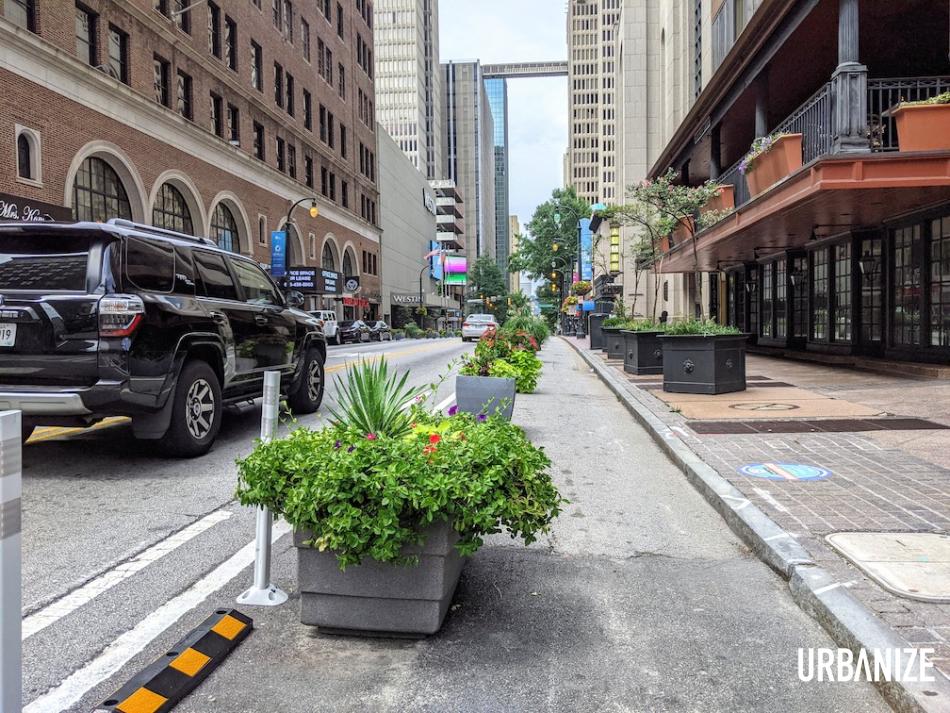 Looking north outside The Ritz-Carlton, Atlanta, as seen following the Peachtree Street shared lanes project's installation last summer. The lanes were removed this year following pushback from a prominent downtown property owner. Josh Green/Urbanize Atlanta
Looking north outside The Ritz-Carlton, Atlanta, as seen following the Peachtree Street shared lanes project's installation last summer. The lanes were removed this year following pushback from a prominent downtown property owner. Josh Green/Urbanize Atlanta
On the bright side, Atlanta would have surely risen at least a few slots if miles of planned or under-construction bike infrastructure was considered. Especially if that counted all BeltLine segments and the myriad projects now promised in the Moving Atlanta Forward package, which was roundly approved by voters just this week.
Then again, removing protected (if nascent) lanes from downtown’s marquee street this past winter suggests we might have deserved the ranking we got.
• Reader poll: Is Atlanta a better place than a decade ago? (Urbanize Atlanta)




